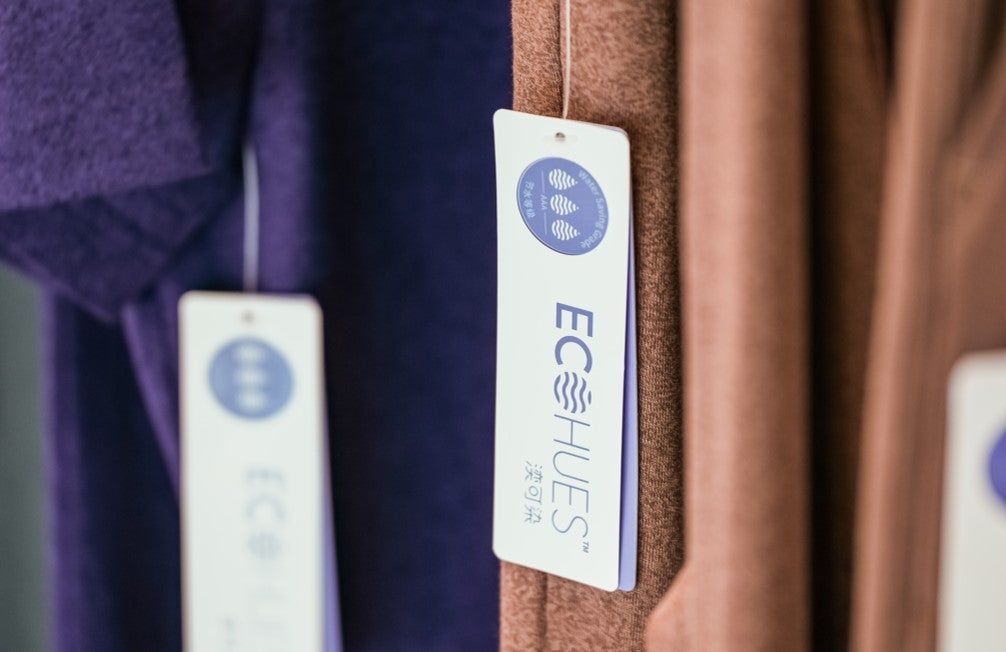Lenzing explained its TENCEL branded lyocell and modal fibres, and Lenzing ECOVERO branded viscose fibres are the first wood-based cellulosic fibres to be dyed using Exponent Envirotech's ECOHUES waterless dyeing technology.
Lenzing and Exponent Envirotech chose knitwear as the application to bring the results of the collaboration to life. The duo have joined forces with Hong Kong-based innovative knitwear manufacturer Cobalt Fashion to provide the industry with alternative yarn options that claim to be as colourful and functional as conventionally dyed yarns.
The key difference to the technology being that it is said to reduce water usage and dye usage respectively by 95% and 40% to mitigate the textile industry’s carbon footprint and environmental impact.
For this reason Lenzing believes the trio are bringing a "scientific breakthrough to the mainstream textile market".
Lenzing director of technical marketing and development, global textiles business Rex Mok explained: "At Lenzing, we are constantly collaborating with partners to identify innovative solutions that not only ensure product quality but also strive to reduce usage of our planet’s resources. The collaboration with Exponent Envirotech and Cobalt Fashion is a testament to such dedication, as we bring scalable innovations to the textile value chain.”
He added: "With the availability of such technology, we are taking a crucial step towards systematically reforming conventional practices within the textile value chain.”
ECOHUES technology is said to effectively replace the use of water in the dyeing process with a non-aqueous solvent that is 99.8% reusable and streamlines the pre-treatment and finishing processes by nearly removing the need for soap washing after dyeing. This helps to reduce the overall water usage by 95% compared to traditional dyeing methods.
The simplified process not only lowers water and energy consumption but also boosts cost-effectiveness and production efficiency by significantly reducing the traditional dyeing duration from 12 hours to 6-8 hours.
Exponent Envirotech's chairman Wesley Choi said: "This project integrates sustainable production practices with responsible materials, forging a new standard for resource-efficient and environmentally friendly fashion production within the industry.”
Cobalt Fashion's senior vice president of merchandising Andrew Dixon added: "This partnership is an important first step as we join hands to create far-reaching impact and bring systematic change across the textile industry.”
In March Lenzing revealed it was working on processing geotextiles at the end of their two-year lifecycle into new textile fibres for garments.
.









